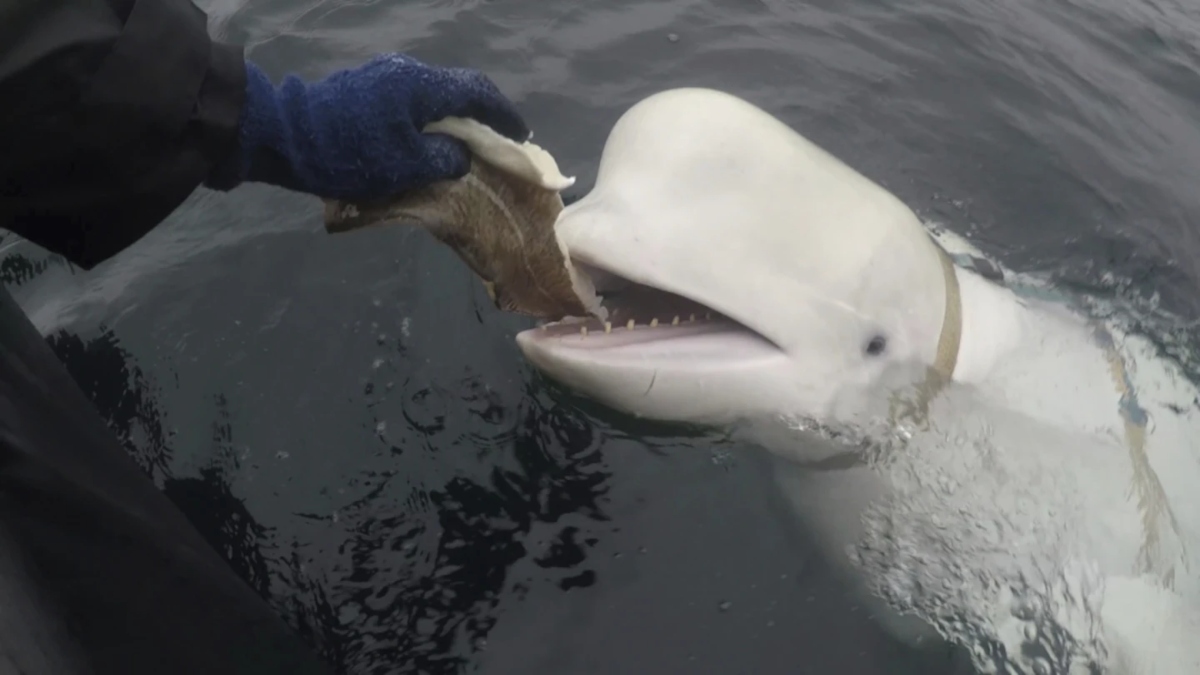A beluga whale which was first spotted in Norway and was rumoured to be a “Russian spy” was found dead on Saturday. The whale nicknamed Hvaldimir, was first spotted off the shore of Norway wearing a harness, which ultimately prompted rumours that it could be a spy from Moscow.
The Norwegian public broadcaster NRK reported that the sea creature’s body was found floating in the Risavika Bay which is located in southern parts of Norway. The body was discovered by a father and son who were fishing in the region. Interestingly, the nickname of the whale was a combination of the Norwegian word for whale – hval – and the first name of the Russian president, Vladimir Putin.
The local authorities lifted the whale out of the water by crane and took it to a nearby harbour for examination by experts. “Unfortunately, we found Hvaldimir floating in the sea. He has passed away, but it’s not immediately clear what the cause of death is," marine biologist Sebastian Strand told NRK. He also mentioned that there were no major external injuries that were visible on the animal.
Hvaldimir was in ‘good condition’ a day before his death
Strand who has monitored Hvaldimir’s adventures for the past three years said that he was “deeply affected” by the death of the whale. “It’s absolutely horrible,” Strand, who works for Norway-based non-profit organisation Marine Mind, said. “He was apparently in good condition as of [Friday], so we just have to figure out what might have happened here.”
The 4.2-metre (14ft), 1,225kg (2,700lb) whale was first spotted back in 2019 by fishermen near the northern island of Ingøya. At that time, he was wearing a harness and what appeared to be a mount for a small camera and a buckle marked with the words “Equipment St Petersburg”. This sparked speculations that Hvaldimir was a “spy whale”.
Impact Shorts
More ShortsHowever, Marine Mind, which followed the whale’s journey noted that it was “tame” and might have been held in Russian captivity. “Based on these observations, it appeared as if Hvaldimir arrived in Norway by crossing over from Russian waters, where it is presumed he was held in captivity,” the body said.
Due to this behaviour, many believed that Hvaldimir may have been used as “a therapy whale” of some sort in Russia.
With inputs from agencies.


)

)
)
)
)
)
)
)
)



